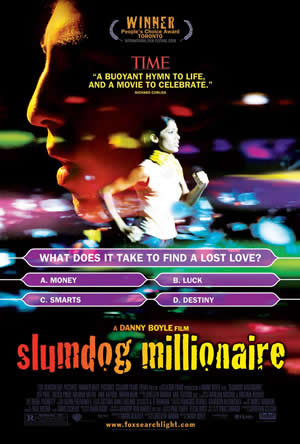WEST IS WEST (2010)
Genre: Comedy/ Drama
Director: Andy De Emmory
Cast: Om Puri, Linda Bassett, Jimi Mistry and Aqib Khan
RunTime: 1 hrs 43 mins
Released By: Cathay-Keris Films
Rating: NC16 (Coarse Language)
Official Website: -
Opening Day: 28 July 2011
Synopsis: Sequel to the internationally acclaimed, multi-award winning “EAST IS EAST”, WEST IS WEST takes the Khan family on a journey from Salford, England, to rural Pakistan. WEST IS WEST is the coming of age story of both 13 year old Sajid and also of his father, 60 year old George (‘Ghengis’) Khan.
The now much diminished, but still claustrophobic and dysfunctional, Khan family continues to struggle for survival. Sajid, the youngest Khan, the runt of the litter, is deep in pubescent crisis under heavy assault both from his father's tyrannical insistence on Pakistani tradition, and from the fierce bullies in the schoolyard. So, in a last, desperate attempt to 'sort him out', his father decides to pack him off to Mrs Khan No 1 and family in the Punjab, the wife and daughters he had abandoned 35 years earlier. It is not long before Ella Khan (Mrs Khan No 2), with a small entourage from Salford, England, swiftly follows to sort out the mess, past and present.
Movie Review:
It’s been more than 10 years since the film version of Ayub Khan-Din’s semi-autobiographical story about the tale of a mixed-race British household in Salford, Lancashire in the early 1970s. “East is East” was the title of the film, the intercultural comedy a hit during a time when British Asians were making their mark on pop culture- and films like “Bend It Like Beckham” and “The Guru” became unexpected successes at the box office. Why this sequel has taken this long is perplexing, and why they eventually made it even more so, considering how it is no more than a flaccid attempt at replicating the success of its predecessor.
Again penned by Khan-Din, ‘West is West’ takes place some five years after the first film, and starts off in Britain where the youngest son of the family, Sajid (newcomer Agib Khan) is turning to rebellion to counter the racist bullying he gets from his fellow schoolmates and the admonishments he receives from his parochial father George (Om Puri). Exasperated, the father decides to bring him back to Pakistan to teach him some old-fashioned values and to give him a sense of history and belonging. Their ancestral village in the Punjab is where this coming-of-age tale is largely set, though this is also precisely where the film starts to go very quickly downhill.
For the first 15 mins, Khan-Din and director Andy de Emmony successfully recapture the verve of the politically incorrect first film which made it such a hilarious cross-cultural comedy delight- Jahingar’s over-protective ways with Sajid and a daft headmaster at Sajid’s school are the highlights. But the change in location takes away what teeth the biting comedy had in the first place, and even the occasional sharp line (like ‘F**k off, Mowgli’ to a local kid who tries to befriend Sajid) disappears altogether once Sajid begins to settle into the rhythm of the local village life.
In its place is a contrived story involving Sajid’s lessons with the village wise man Pir Naseem (Nadim Sawalha), as the latter urges him to recognise his lineage and to find his direction in life. Naturally, Sajid does, even though it takes some time before he summons the respect for his father. Sajid’s coming-of-age is frankly a bore, one that seems obligatory and nowhere near as moving or as engaging as it should be. Faring slightly better are two other parallel storylines- the first about George’s older son Maneer (Emil Marwa) and his search for a bride; and the second about George’s reconciliation with his first wife and his daughters whom he left behind in Pakistan some 30 years ago.
In particular, the latter is anchored by Om Puri’s strong performance, portraying the angst and guilt his character feels within him for abandoning his previous family with only the occasional correspondence as well as a regular stipend from England. This predicament also forms the basis of the film’s most poignant moment, when George’s English wife Ella (Linda Bassett) meets his first (Ila Arun) and proceeds to engage in a conversation that conveys each other’s inner anguish despite not being able to understand the other’s language. Bassett and Arun are uniformly excellent in their roles, and you can’t help but empathise with both at the same time.
Yet the emotional impact of this exchange is ultimately dulled by a film that meanders too long and too aimlessly for its own good. There is little to be learnt or enjoyed in this intercultural movie, a sequel that loses the jocular and irreverent tone of the first film. It doesn’t matter if you’re from the East, or from the West- this is one boring affair whichever side of the continent you hail from.
Movie Rating:


(Despite good performances from its multiracial cast, this long-overdue sequel is a dull coming-of-age tale that pales considerably to its sharper and immensely more entertaining predecessor)
Review by Gabriel Chong
You might also like:




.jpg)
.jpg)